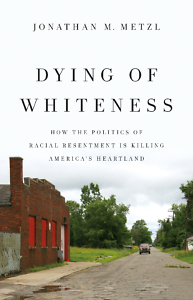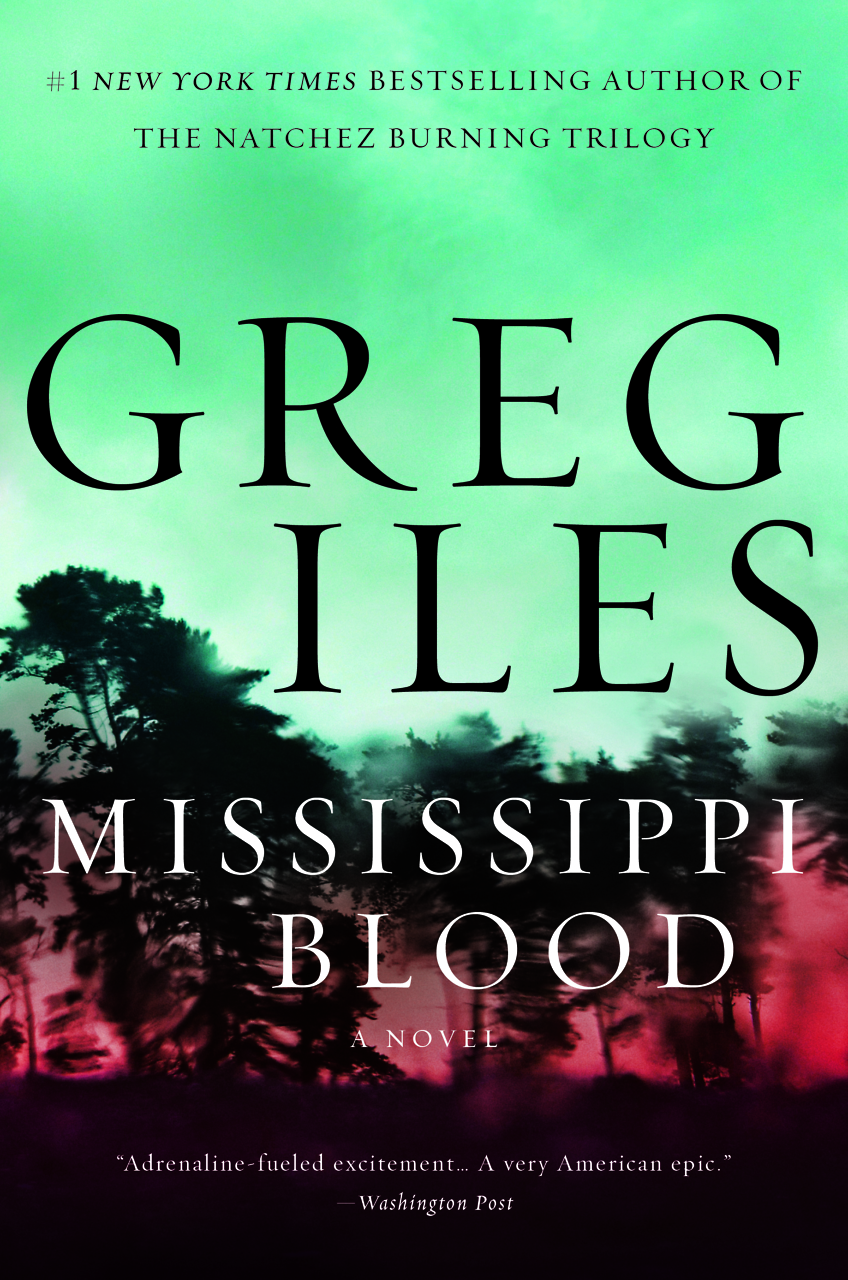Self-Inflicted Wounds
Jonathan Metzl’s Dying of Whiteness details the dangers of racial resentment
The title of Jonathan M. Metzl’s new book, Dying of Whiteness, is not meant as hyperbole. Metzl, a Vanderbilt psychiatrist and researcher, argues that struggling white voters tend to support politicians whose policies endanger the voters’ own lives. On issues with life-or-death consequences—gun control and health care, for example—states where leaders once prided themselves on ideological compromise have now embraced legislation that imperils their most vulnerable citizens.

A subtle form of racism explains these changes, according to Metzl, but it’s a prejudice lodged so deeply in American history that it hides behind other banners. As he explains, “the politics of racial resentment” claims to promote the virtues of safety and austerity, but its true psychological appeal is a belief in white superiority. The tragic irony, as Metzl points out, is that this politics of resentment “demands that lower- and middle-class white Americans vote against their own biological self-interests.”
What makes this argument haunting is evidence that white communities have adopted far-right ideas as essential to their own identities. Metzl offers the case of Trevor, a white Tennessean with Hepatitis C but no health insurance: “Had Trevor lived a simple thirty-nine-minute drive away in Kentucky,” which adopted the Affordable Care Act in 2013, “he might have topped the list of candidates for expensive medications called polymerase inhibitors, a lifesaving liver transplant, or other forms of treatment,” Metzl writes. Instead, because Tennessee’s legislature rejected the Affordable Care Act’s reforms and shot down its Republican governor’s alternative plan to expand Medicaid, Trevor suffers from jaundice and constant pain in his stomach and legs.
Still, Trevor applauded Tennessee’s resistance to federal initiatives that would improve his own health. “Ain’t no way I would ever support Obamacare or sign up for it,” Trevor told Metzl. “I would rather die.” His reason: “No way I want my tax dollars paying for Mexicans or welfare queens.” Most of the people Metzl interviewed in preparing to write this book were not so explicit in their bigotry, but similar prejudices played a central role in the three states Metzl studied.
 In addition to his analysis of the healthcare debate in Tennessee, Metzl traveled to Missouri to investigate the effects of loosening gun-control laws and to Kansas to study the results of its “experiment” in slashing funding for schools. In each case, right-wing politicians used coded language to convince white voters that their policies would protect the position of white citizens in the social hierarchy. The rhetoric has been so effective that, even when the new laws have detrimental effects on white communities, white people support them as a way of retaining vestiges of “lost white privilege,” according to Metzl. They are willing to die to keep others from enjoying a higher quality of life too.
In addition to his analysis of the healthcare debate in Tennessee, Metzl traveled to Missouri to investigate the effects of loosening gun-control laws and to Kansas to study the results of its “experiment” in slashing funding for schools. In each case, right-wing politicians used coded language to convince white voters that their policies would protect the position of white citizens in the social hierarchy. The rhetoric has been so effective that, even when the new laws have detrimental effects on white communities, white people support them as a way of retaining vestiges of “lost white privilege,” according to Metzl. They are willing to die to keep others from enjoying a higher quality of life too.
Metzl takes pains to distinguish this kind of “structural racism” from personal animus—the political rifts he describes “tap into larger histories, myths, and ideologies.” Those deep roots help explain why so many people who claim not to be racist themselves nevertheless support policies that stigmatize minorities and vilify immigrants. Issues like gun control and healthcare cannot be separated from their original, race-tinted contexts. The Second Amendment was passed in large part to help land-owning white men protect their property from Native Americans and slaves, and Southerners objected to Medicaid in 1965 primarily because they feared the integration of hospitals. White Americans generally fail to recognize the racism in these issues because it was woven into the fabric from the start.
In every section of Dying of Whiteness, Metzl allows citizens to speak for themselves, adding authenticity to his project. In focus groups and interviews, subjects reveal the tension between reason and common sense on the one hand and emotional commitments on the other. In Cape Girardeau, Missouri, after a meeting of a support group for people who have lost loved ones to gun suicide, a woman confided privately, “People here love their guns, but we can’t just have guns everywhere all the time. It’s just creating chaos and, you know, not making us any more safe.” Then she added, “I would never say that in the group, though.”
That inability to find middle ground characterizes each of Metzl’s case studies, but perhaps there is hope. In Kansas, where pragmatism was once heralded as a state virtue, Governor Sam Brownback led a “conservative takeover unlike any other.” Six years later his policies had resulted in massive budget shortfalls, crumbling infrastructure, and measurable declines in public schools. But then the story turned in a way that provides reason for optimism: Republicans in the legislature defied Brownback’s supply-side dogmatism and worked with Democrats to repeal tax cuts for the wealthy and re-fund schools. In the governor’s election of November 2018, Democrat Laura Kelly defeated Brownback’s anointed successor.
Racial resentment remains a potent force. But as the tragedies that Metzl illustrates become more widely known, perhaps reason and humility will regain their place in American political discourse.

Sean Kinch grew up in Austin and attended Stanford. He earned a Ph.D. from the University of Texas. He now teaches in Nashville.


